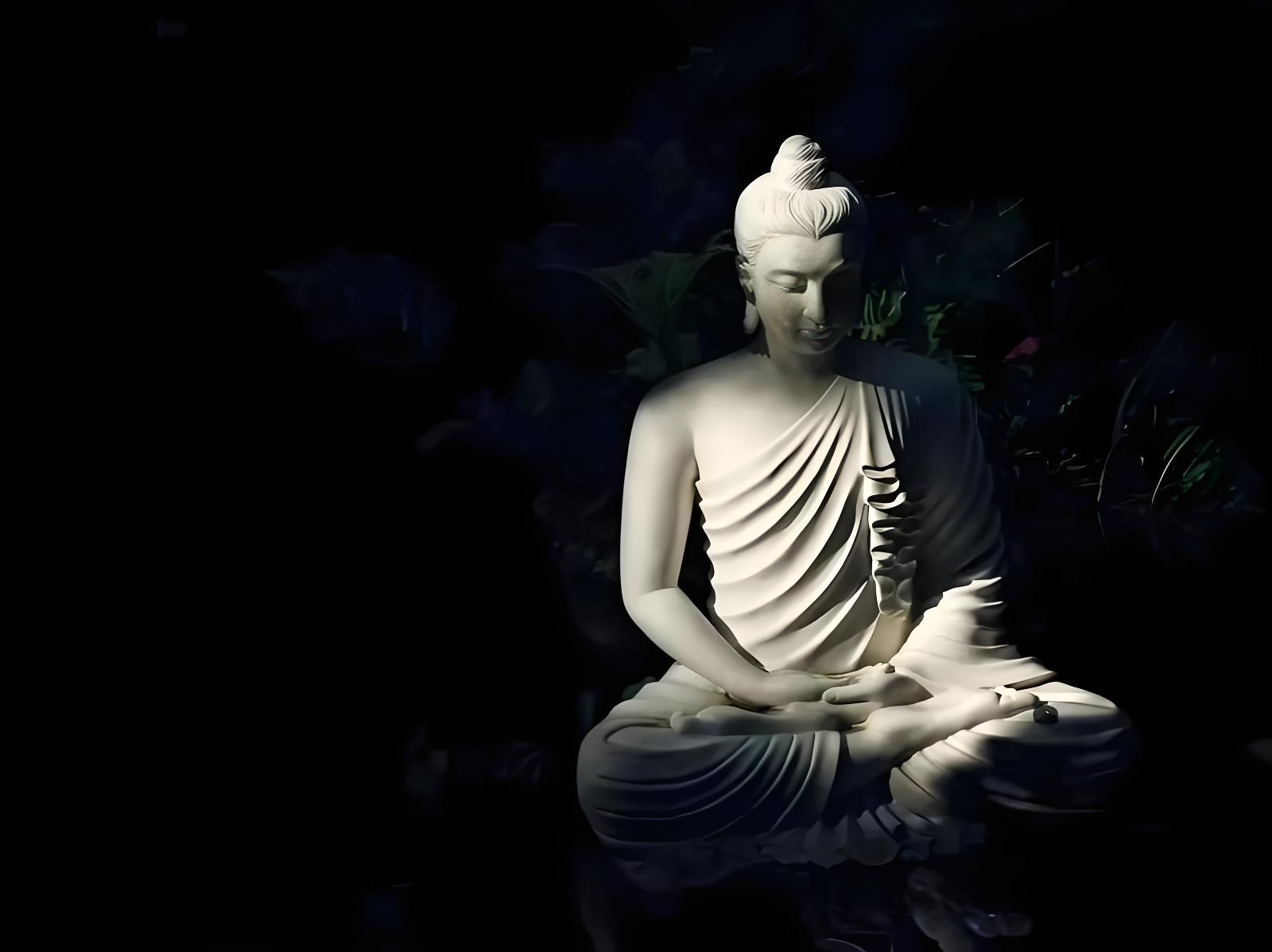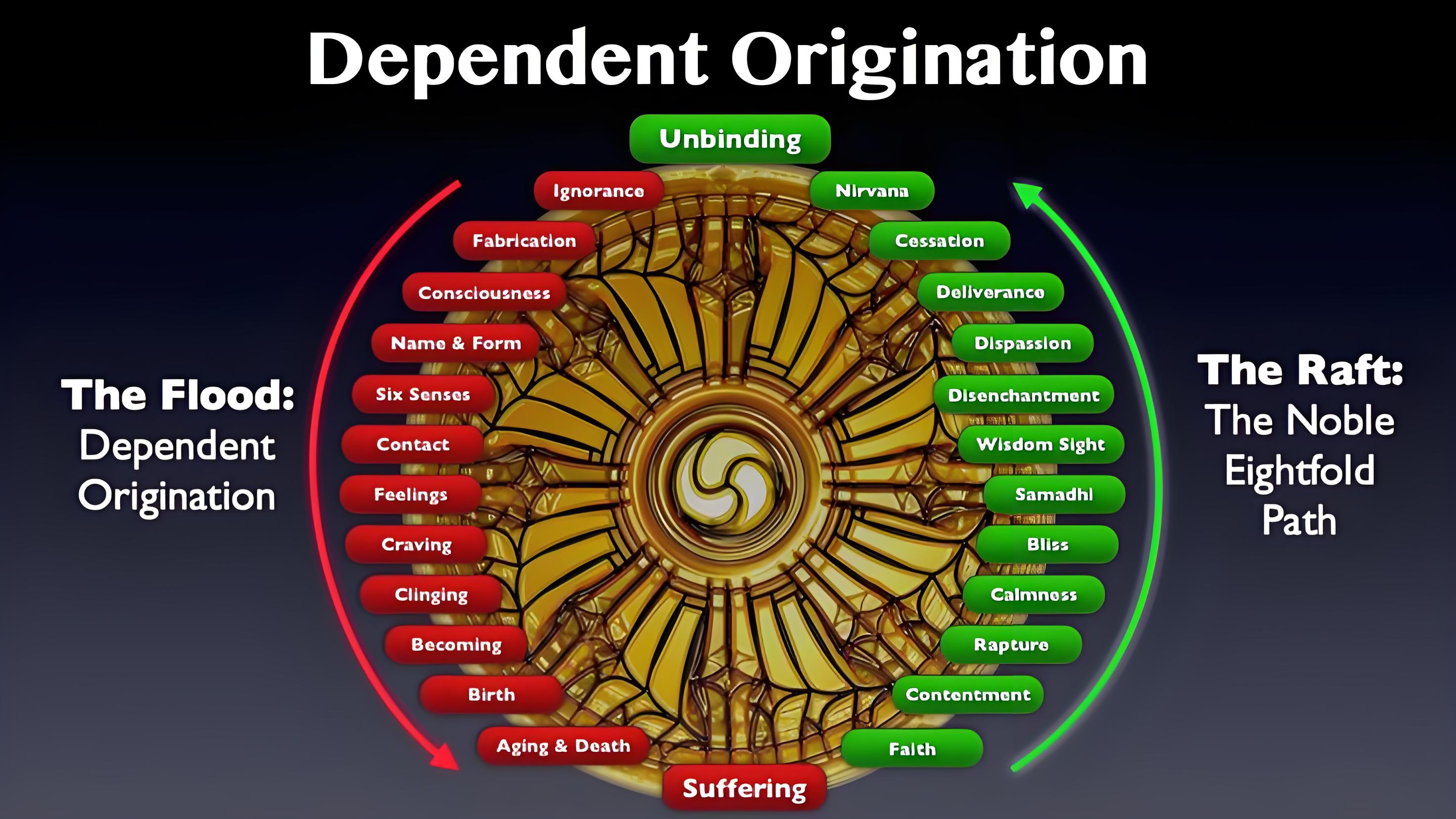Do you sometimes feel that something is missing from your understanding of the world? A subtle sense that what we perceive as reality might be far more fluid and interconnected than it seems? If so, the philosophy of Madhyamaka might offer you the answers you seek. Madhyamaka, often referred to as the “Middle Way,” represents a deep school of Buddhist thought that challenges our fundamental assumptions about reality. It proposes a radical perspective: by understanding emptiness, we can discover true freedom.
What is Madhyamaka Buddhism?
Madhyamaka Buddhism, translating to “the middle way,” isn’t about settling between two extremes. Instead, it focuses on transcending all extremes. This profound philosophy, developed by the Indian Buddhist philosopher Nagarjuna, delves into the very nature of reality. At its core, Madhyamaka teaches that all phenomena are empty of inherent existence. This does not mean that nothing exists, but rather that nothing exists independently, by its own nature. Instead, things exist dependently, arising from a web of causes and conditions. Consequently, all things are constantly changing. This understanding is central to the practice and pursuit of enlightenment.
The Concept of Emptiness
The term “emptiness,” or sunyata in Sanskrit, is often misunderstood as nihilism, as if it suggests that nothing exists. However, this is not the case. Instead, emptiness in Madhyamaka Buddhism refers to the lack of inherent existence. It points out that everything we perceive is devoid of a fixed, unchanging self or essence. Consider, for example, a table. It is called a “table” because it is a piece of furniture that has a flat top and is supported by legs. However, if we remove the legs or the top, it ceases to be a table. Thus, it has no inherent “tableness” of its own. Therefore, the existence of the table is dependent on its parts and our concept of it.
The Two Truths
Madhyamaka philosophy operates on the basis of two truths: the conventional truth and the ultimate truth. Conventional truth describes how things appear to us in our everyday experience. For example, we perceive tables, chairs, and people as distinct and separate entities. However, from the perspective of ultimate truth, all of these things are empty of inherent existence. Ultimate truth is not a denial of conventional truth, but rather a deeper understanding of how it works. The two truths are not separate from one another but are two different ways of looking at the same thing. Therefore, understanding this duality is critical to grasping the essence of Madhyamaka.
Core Teachings of Madhyamaka
The main tenets of Madhyamaka Buddhism can be initially challenging to grasp. However, once understood, they can lead to a revolutionary shift in understanding. It challenges our deeply ingrained beliefs about how things work. Central to this is the concept of dependent origination.
Dependent Origination
Dependent origination is the idea that all things arise in dependence on other things. No phenomenon exists in isolation. Everything exists because of a complex web of causes and conditions. Therefore, this means that nothing has an inherent essence or unchanging identity. This concept challenges the idea of a fixed self, which is a source of suffering. Instead, when we understand dependent origination, we start to see the interconnectedness of everything. Thus, we become more compassionate and less attached to our individual identities.
The Rejection of Extremes
Madhyamaka Buddhism also rejects all extremes. This includes extreme views like nihilism (the idea that nothing exists) and eternalism (the idea that things have a permanent, unchanging essence). Instead, Madhyamaka proposes a middle way that transcends these dualities. This middle path leads to a deeper, non-dualistic understanding of reality. By not clinging to extremes, we can avoid many of the pitfalls of confusion and suffering. Therefore, the rejection of extremes is central to practicing Madhyamaka.
The Importance of Logic
Logic and reasoning are essential tools in the Madhyamaka school of thought. Nagarjuna used logical analysis to dismantle many of the prevalent philosophical viewpoints of his time. He employed a unique method called prasangika, which involves pointing out contradictions and absurdities in the claims of others. This technique was designed to help people see the flaws in their own assumptions. This, in turn, allows for a deeper understanding of the truth. Therefore, logic is seen as an essential tool to reach the ultimate understanding in Madhyamaka.
Madhyamaka and the Path to Enlightenment
Madhyamaka philosophy is not just an academic pursuit; it has significant implications for spiritual practice. The goal of Madhyamaka Buddhism is to attain enlightenment. This enlightenment represents complete freedom from suffering. By understanding the emptiness of all phenomena, we can begin to let go of our attachments. This is the key to liberation.
Overcoming Attachment
Attachment is a root cause of suffering, according to Buddhist philosophy. We suffer because we cling to things that are impermanent. However, when we understand that nothing has inherent existence, we can start to detach from these things. This detachment does not imply indifference. On the contrary, it involves a freedom from the emotional turmoil associated with grasping at a sense of self and the world. Therefore, embracing emptiness is a step on the path to finding inner peace.
The Realization of No-Self
The concept of no-self, or anatman in Sanskrit, is another important aspect of Madhyamaka. It means that we do not have a fixed, permanent self or soul. Our sense of self is constantly changing, influenced by our experiences and interactions. By realizing the emptiness of self, we can break free from ego and its associated suffering. Consequently, the pursuit of no-self leads to greater compassion.
Practical Application of Madhyamaka
Madhyamaka is not just a theoretical philosophy; it can be applied to everyday life. For example, when facing a difficult situation, instead of clinging to our emotions and our perception of the situation, we can look at it through the lens of emptiness. Therefore, this allows us to see the situation with less reactivity and with more clarity. We can then approach it with a more open and compassionate mindset. This practical application of Madhyamaka principles leads to better relationships.
The Lasting Influence of Madhyamaka
The Madhyamaka school of thought has had a profound and lasting influence on Buddhist thought and practice. Its ideas have deeply impacted the development of Mahayana Buddhism. This has continued to shape Buddhist traditions for centuries. This influential philosophy encourages a radical perspective.
Impact on Mahayana Buddhism
Many Mahayana traditions trace their philosophical underpinnings to the Madhyamaka school. This has impacted Tibetan Buddhism and Zen Buddhism, among others. These traditions have incorporated the concept of emptiness into their practices. Therefore, the ideas put forth in Madhyamaka have become a core tenet of these practices.
Modern Relevance
The teachings of Madhyamaka are as relevant today as they were centuries ago. In a world filled with constant change and uncertainty, its message of emptiness can be liberating. It invites us to question our assumptions about reality, to embrace the interconnectedness of all things, and find freedom in the midst of impermanence. Therefore, Madhyamaka is a relevant philosophy for modern life.
A Novel Perspective on Madhyamaka
One novel insight into Madhyamaka lies in its applicability to modern concepts of identity and reality. The constant flux of information in today’s world has made it challenging to form solid, consistent identities. Therefore, the Madhyamaka teachings offer a unique perspective. Instead of being seen as something negative or frightening, the fluidity of self and the world can be seen as a path to liberation. Madhyamaka’s teachings on emptiness highlight the freedom that lies in the absence of fixed definitions. It shows us that our identities, like all phenomena, are constantly changing. Understanding this allows one to develop a sense of peace and flexibility, regardless of the challenges one faces. The philosophy isn’t about rejecting the world, it is about engaging with it more freely and authentically.
Conclusion
Madhyamaka Buddhism offers a profound and revolutionary approach to understanding reality. It challenges us to look beyond our conventional perceptions. Through the concept of emptiness, we can begin to dismantle the structures of suffering. The path of Madhyamaka is one of insight, compassion, and ultimately, freedom. It invites us to embark on a journey of discovery. Consequently, it will radically transform your understanding of yourself and the world. Therefore, if you are looking for more than just a philosophy and rather a way to greater understanding, consider delving deeper into the teachings of Madhyamaka.
If this exploration of Madhyamaka Buddhism has sparked your interest, we invite you to explore more on this fascinating topic. Share this article with others who may benefit from its insights. Also, feel free to leave a comment below with your thoughts.




